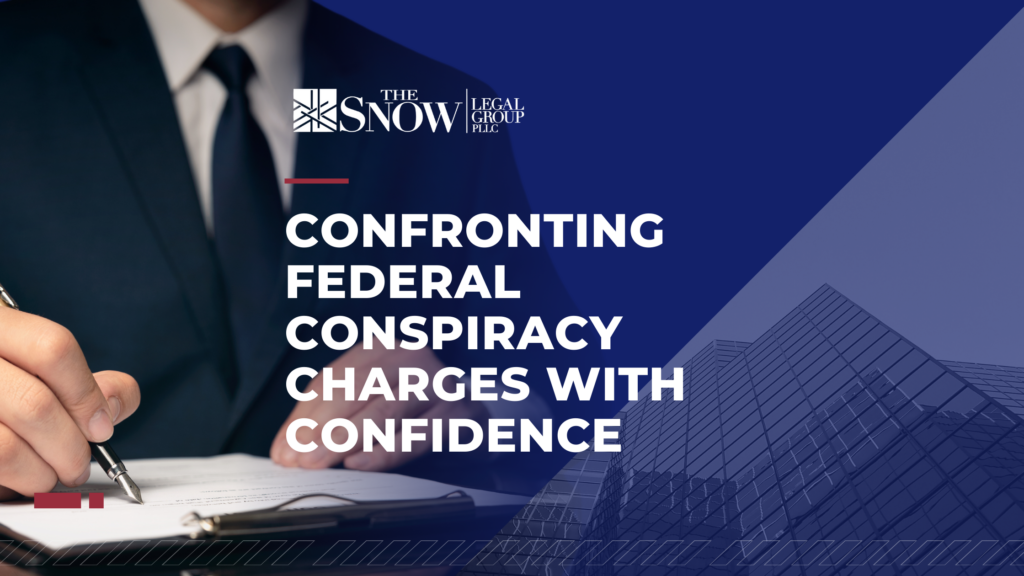
Federal conspiracy charges can unexpectedly entangle individuals in legal battles that might seem surreal at first. Imagine discussing a hypothetical scenario of robbing a bank with a friend, only to find out that such a discussion, followed by a seemingly innocent act like taking photographs of a bank, could land you in hot water with federal charges. This situation underscores the gravity and breadth of federal conspiracy laws, where the line between idle talk and actionable conspiracy is finer than many realize.
Defining Federal Conspiracy
At its core, a federal conspiracy charge involves an agreement between two or more parties to engage in criminal activity against the U.S. government. Contrary to popular belief, it’s not necessary for the crime in question to have been completed for charges to be brought forward. According to the federal conspiracy statute, the mere act of agreeing on criminal activity and taking a single step towards its execution—known as an “overt act”—is sufficient for conspiracy charges to be applied. This broad definition includes any conspiracy to violate federal laws, making the assistance of skilled criminal defense attorneys invaluable.
How Charges Are Brought
Federal prosecutors do not need to demonstrate a written agreement to press conspiracy charges. It’s enough to show that the parties were collaboratively working towards committing a federal crime. The required elements for a federal criminal conspiracy charge include an agreement to commit a specific federal crime, knowledge of the conspiracy by the accused, discussion of committing a federal crime, and an overt act by one of the conspirators to further the crime. This overt act is a crucial piece of the puzzle; it’s the tangible step towards realizing the plan that completes the crime of conspiracy. For instance, if friends discuss distributing large amounts of drugs–even as a joke–then one of them is arrested for an unrelated crime, prosecutors will likely call for conspiracy charges.
Federal conspiracy can encompass a wide range of crimes, from drug trafficking and white-collar crimes to gang-related activities and money laundering. The penalties for conspiracy are severe and distinct from the penalties for the underlying crime. Convicted individuals could face up to 5 years in prison for a felony conspiracy, plus fines and restitution to those harmed by the conspiracy’s actions. Importantly, a conviction requires proving beyond a reasonable doubt that an agreement to commit a federal violation existed and was followed by an overt act.
The Power of Experienced Defense
The implications of such charges can be far-reaching and complex, often surprising individuals with the breadth of activities that can constitute a conspiracy under federal law. The challenge lies in the nature of conspiracy itself; agreements to commit crimes are seldom made in writing or through explicit verbal contracts. As a result, prosecutors often rely on circumstantial evidence, such as communications between the parties, to establish both the agreement and the intent to commit a crime.
The overt act, even if seemingly innocent on its own, serves as the linchpin for the prosecution’s case by demonstrating that the conspirators moved beyond mere discussion toward the actual commission of the crime. This act solidifies the conspiracy, making the prosecution’s task to prove beyond a reasonable doubt not only that the defendants intended to agree but also took concrete steps in to commit the alleged criminal plan.We understand the stress and uncertainty that come with facing federal charges and are committed to offering our clients a robust defense aimed at securing the best possible outcome. Facing federal conspiracy charges is a pivotal moment that requires careful consideration and strategic action. Contact The Snow Legal Group, PLLC, by calling 704-358-0026 today to schedule a consultation and begin the process of defending your freedom and your future.